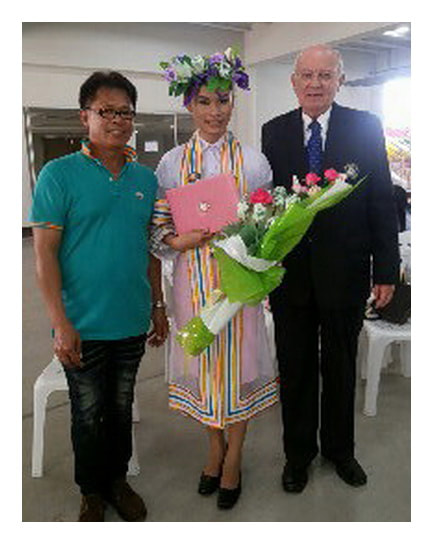|
“Students denied right to dress according to gender identity; petition National Human Rights Commission” thundered a headline on an LGBT news website from the July 17, 2019 edition of Prachatai English. The article attracted the attention of all of us who are concerned about SOGI rights, but it grabbed me even more because the students are in the university where I have worked for decades.
In summary the article reported that the students from the Faculty of Pharmacy of Payap University have been helped by Sirisak Chaited a prominent LGBT activist (who graduated from Payap University) to appeal a decision by the deans of Payap which denied the petition of each of the students to wear clothing indicating a different sex from the one on their national identity cards and university documents. The reason given is that “presenting as transgender is not appropriate in their discipline.” The article then notes that previous cases like this have been brought to the National Human Rights Commission and resolved when NHRC representatives visited the universities. Sirisak, the article said, hopes for a similar outcome, namely a change in university policy. The news article then mentions that this sort of discrimination is widespread in faculties of education and health sciences. I have background as an administrator of universities in Thailand, and I have sat in discussions about this very issue of uniforms. I would like to suggest that it is not entirely in the university’s hands. In fact, a large number of matters are no longer entirely up to academic instructors and university administrations. Universities have to be concerned about what happens to graduates. If they are going to be hired to be nurses or teachers, lawyers or engineers, physicians or diplomats the first thing after graduation is that they have to pass professional examinations. Prior to that, professional associations certify the education they have received, including clinical practice and the like. For those associations, appearance and capability both count toward the sort of pride and professionalism the associations aspire to maintain. As stipulated by those associations, universities require a variety of uniforms for students in classrooms, in labs, as beginners on site for practice, and as advanced practitioners. Those costumes are gender-specific although that changes over time (both male and female surgical nurses now wear the same garb, for example). Uniforms presumably conform to professional standards. But gender only matters for certain categories of students. All music students would dress according to plan for a concert, but a trans student could decide between a tuxedo or a long black dress. A student nurse does not have that freedom. That’s where the Human Rights Commission comes in. As commencement time approaches the issue comes up again. For students in all departments the commencement ceremony is a major event. Two factors impact whether trans students can wear clothing of their choice. If a member of the Thai Royal Family is presiding at the commencement the stakes are higher. When a member of royalty hands over the diploma as the student’s name is announced it implies a royal validation of the person and the person's achievement. Even when someone else is presenting the diplomas, the list of graduates for every academic degree is approved by the Office of the Higher Education Commission (OHEC) of the Ministry of Education, and the name on the diploma must be exactly the same as on the list approved. Those lists still say "Nai" "Nang" and "Nang Sao" (Mr., Mrs., and Miss). In fact, the name must be exactly the same on all documents, and must be the same as on the student’s National Identity Card. I have attended commencements, however, where the title prefixes were dropped, and only the given name and surname were announced (e.g. the picture above). In those cases the students decided whether to wear skirts or trousers. Perhaps Payap will do that, too. Our percentage of transgender and ambiguous students is substantial. What needs to happen is for OHEC to drop the use of gender indicators and just use personal names on their lists and diplomas. It would be made much easier, as Sirisak said, if the government were to make it clear that gender rights are extended to all citizens as government policy and national law. No university wants to have its graduates invalidated by some government agent because of a technicality. An official policy would clarify this and help everybody feel safer. It remains to be seen whether the newly formed Thai Parliament will address this issue. It has before it the related issue of same-sex civil partnerships. This is not all about letting students express themselves. The issue is about understanding that identifying one’s gender is a matter of discernment of what’s real and not merely a matter of choosing items of clothing. At root this is an issue of human rights and how Thailand will dare to be inclusive. External regulations, whether by institutions, associations, or political entities, are always matters of choice between letting individuals decide or deciding for them. [Note regarding the picture above: Maa graduated from her university wearing female attire, as she had throughout her bachelor’s degree program. Through high school this had not been possible. She considers college as her transition into authenticity.]
0 Comments
Leave a Reply. |
AuthorRev. Dr. Kenneth Dobson posts his weekly reflections on this blog. Archives
March 2024
Categories |
| Ken Dobson's Queer Ruminations from Thailand |
|

 RSS Feed
RSS Feed
